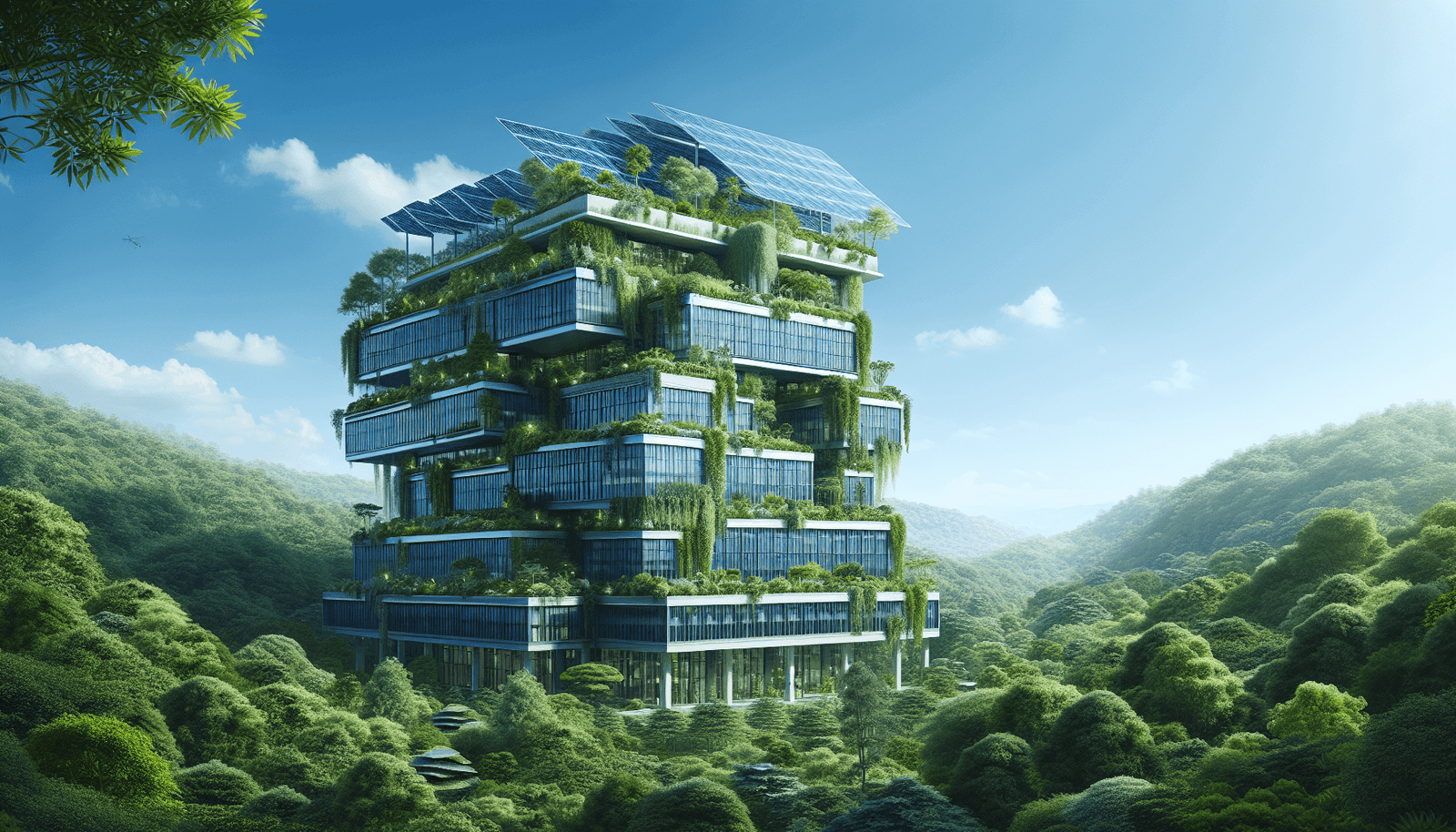Introduction
Have you ever stopped to think about how much energy our buildings consume on a daily basis? In this article, we will discuss the importance of energy efficiency in buildings. From reducing carbon emissions to saving money on utility bills, energy efficiency is crucial for a sustainable future.
Importance of Energy Efficiency
Energy efficiency in buildings is essential not only for reducing our carbon footprint but also for saving money in the long run. By adopting energy-efficient practices, we can significantly decrease our energy consumption and contribute to a more sustainable environment.
Cost Savings
One of the primary benefits of energy efficiency in buildings is cost savings. By implementing energy-saving measures such as installing insulation, energy-efficient windows, and using programmable thermostats, we can reduce our utility bills significantly.
Environmental Impact
In addition to cost savings, energy efficiency in buildings also has a positive impact on the environment. Buildings are one of the largest sources of greenhouse gas emissions, contributing to climate change. By improving energy efficiency, we can reduce our carbon footprint and help combat global warming.
Energy-Efficient Building Materials
When it comes to constructing energy-efficient buildings, the choice of materials plays a crucial role in determining the overall energy efficiency of the structure. Using sustainable and energy-efficient building materials can greatly improve the energy performance of a building.
Insulation
Proper insulation is key to maintaining a consistent indoor temperature and reducing energy consumption. Insulating walls, floors, and ceilings can prevent heat loss in the winter and heat gain in the summer, resulting in lower energy bills.
Energy-Efficient Windows
Windows are another important aspect of energy-efficient building design. Energy-efficient windows, such as double-glazed or triple-glazed windows, can reduce heat loss and prevent drafts, leading to improved energy efficiency.
Roofing Materials
Choosing the right roofing materials can also have a significant impact on the energy efficiency of a building. Cool roofing materials such as white roofs or reflective coatings can help reduce heat absorption and keep the building cool, reducing the need for air conditioning.
Energy-Efficient Appliances and Systems
Apart from building materials, the use of energy-efficient appliances and systems can further enhance the energy efficiency of a building. From heating and cooling systems to lighting and water fixtures, energy-efficient appliances can help reduce energy consumption significantly.
HVAC Systems
Heating, ventilation, and air conditioning (HVAC) systems account for a significant portion of a building’s energy consumption. By investing in energy-efficient HVAC systems, we can reduce energy costs and improve indoor air quality.
Lighting
Lighting is another important aspect of energy efficiency in buildings. Switching to energy-efficient LED bulbs and implementing smart lighting controls can help reduce electricity usage and lower utility bills.
Water Fixtures
Conserving water is also a key component of energy efficiency in buildings. Installing low-flow fixtures such as faucets, toilets, and showerheads can help reduce water consumption and lower water bills.
Energy-Efficient Design and Construction
In addition to energy-efficient building materials and appliances, the design and construction of a building also play a crucial role in determining its overall energy efficiency. By incorporating energy-efficient design principles, we can optimize the building’s performance and reduce energy consumption.
Passive Design
Passive design strategies such as orientation, shading, natural ventilation, and daylighting can help reduce the building’s reliance on mechanical systems. By maximizing natural light and ventilation, we can decrease the need for artificial lighting and cooling.
Energy Modeling
Energy modeling is a valuable tool for predicting and analyzing a building’s energy performance. By simulating different design scenarios, we can identify the most energy-efficient strategies and optimize the building’s energy usage.
Building Envelope
The building envelope, which includes the walls, roof, windows, and doors, plays a crucial role in maintaining thermal comfort and energy efficiency. By improving the insulation and air sealing of the building envelope, we can minimize heat transfer and reduce energy loss.
Energy Monitoring and Management
Once a building is constructed, it is essential to monitor and manage its energy usage to ensure optimal performance. Energy monitoring systems can help track energy consumption patterns and identify areas for improvement.
Smart Meters
Smart meters are advanced energy monitoring devices that provide real-time data on energy consumption. By analyzing this data, we can identify energy-saving opportunities and optimize the building’s performance.
Building Automation Systems
Building automation systems allow for centralized control of various building systems, including HVAC, lighting, and security. By automating the operation of these systems based on occupancy and usage patterns, we can reduce energy waste and improve efficiency.
Energy Audits
Regular energy audits are essential for assessing the energy performance of a building and identifying potential energy-saving measures. By conducting energy audits, we can pinpoint areas of inefficiency and develop a comprehensive energy management strategy.
Conclusion
In conclusion, energy efficiency in buildings is crucial for reducing energy consumption, lowering carbon emissions, and saving money on utility bills. By incorporating energy-efficient building materials, appliances, design principles, and monitoring systems, we can create buildings that are environmentally sustainable and cost-effective. Let us make a conscious effort to prioritize energy efficiency in buildings and contribute to a more sustainable future for generations to come.
